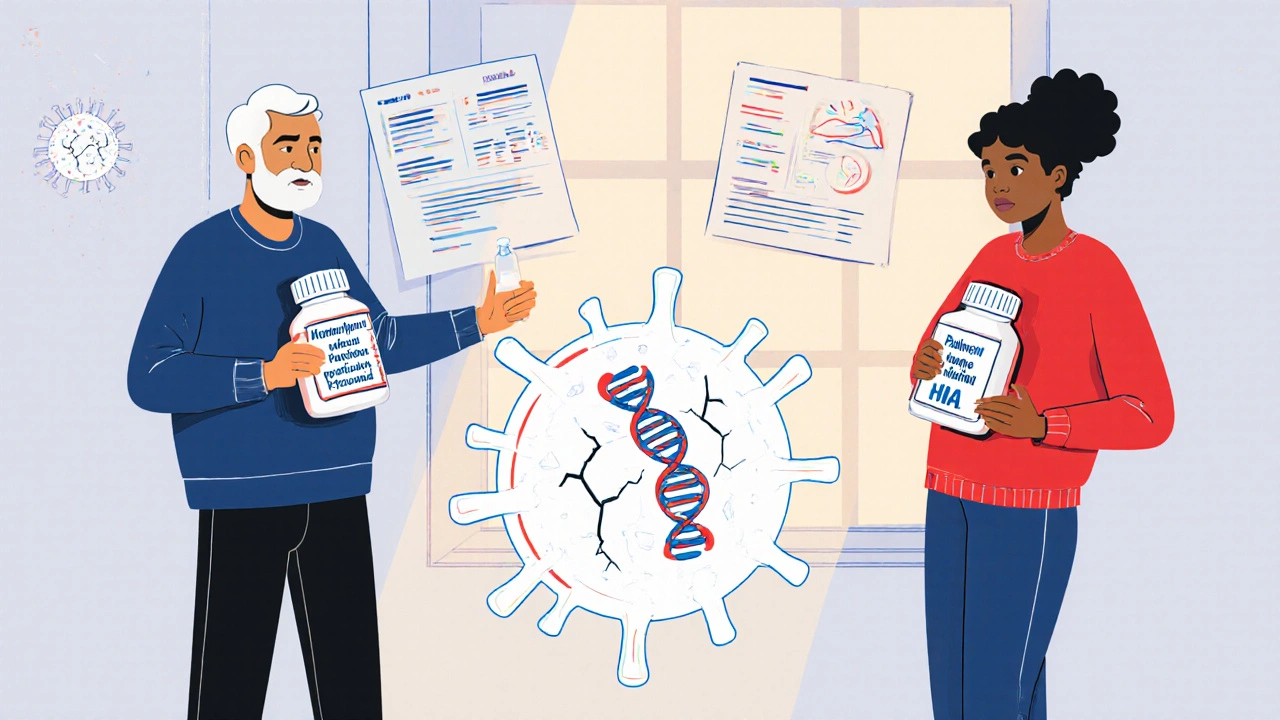Remdesivir: What It Is, How It’s Used, and What You Need to Know
When it comes to fighting serious viral infections, Remdesivir, a synthetic antiviral medication developed to target RNA viruses. Also known as GS-5734, it was originally studied for Ebola but found its biggest role during the COVID-19 pandemic. Unlike antibiotics that kill bacteria, Remdesivir works by confusing the virus’s ability to copy itself. It doesn’t cure infections, but it can slow them down—giving your immune system a better shot at winning.
Remdesivir isn’t for every case of COVID-19. It’s mainly used in hospitals for patients who are sick enough to need oxygen but not yet on a ventilator. Studies show it can shorten hospital stays by a few days, but it doesn’t significantly lower death rates in most groups. The FDA approved it for use in adults and children over 12, but only under specific conditions. Outside of hospitals, it’s rarely given because it must be infused through an IV over 30 to 120 minutes—something you can’t do at home.
People often ask if Remdesivir is the only option. It’s not. Other antivirals like Paxlovid and molnupiravir are easier to take (they’re pills), and for many, they work just as well—or better—especially if started early. Remdesivir’s main advantage is that it’s safe for people who can’t take oral meds, like those with severe nausea or swallowing issues. But it’s also expensive and requires medical supervision, which limits its use.
Some clinicians question whether Remdesivir is worth the cost and effort. A 2023 WHO analysis found only a small benefit in overall survival, especially when compared to simpler supportive care. Still, in certain high-risk groups—like those with weakened immune systems—it remains a tool worth having. It’s not a miracle drug, but it’s not useless either. Context matters.
Remdesivir also ties into bigger conversations about drug access and generic versions. While the brand-name version (Veklury) is still under patent, some countries have produced generic forms under emergency licenses. But quality control is a concern—something we’ve seen with other overseas-made drugs, like those discussed in posts about generic manufacturing risks. Not all generics are created equal, and with a drug like Remdesivir, the stakes are high.
What you’ll find in the articles below are real, practical takes on how drugs like Remdesivir fit into everyday care. You’ll read about how antivirals compare to other treatments, why some drugs get approved while others fade, and how patient safety is shaped by manufacturing standards, pricing, and clinical guidelines. These aren’t marketing pieces—they’re grounded in what doctors see, what studies show, and what patients actually experience.
Molnupiravir vs. Other COVID-19 Antivirals: What Works Best in 2025
- Robin Tudge
- November 18, 2025
- 13 Comments
In 2025, Paxlovid is the most effective oral treatment for high-risk COVID-19 patients, but Molnupiravir remains a practical alternative when drug interactions make Paxlovid unsafe. Remdesivir is used for hospitalized patients. Know your options before you need them.
read more
